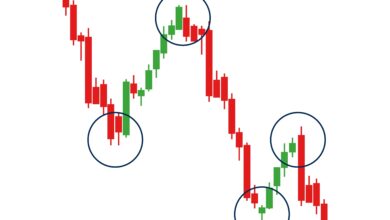Is Currency Trading Worth the Risk?
The foreign exchange market, commonly known as Forex, has its fair share of risks and challenges, as evidenced by numerous stories of traders losing their accounts and financial institutions suffering significant losses. The absence of regulation and the presence of unscrupulous brokers targeting inexperienced traders further exacerbate these risks. Additionally, retail traders often struggle to match the technological advancements, market analysis tools, and informational advantages enjoyed by major financial institutions. Despite these drawbacks, many traders are still enticed by the potential to improve their standard of living through Forex trading. This begs the question: is currency trading truly worth the risk, or is it merely an elusive pursuit? Let’s delve into this matter in the following article.
Determining whether a profession is worthwhile and justifies the associated risks depends on several factors, including:
- Above-average earnings.
- Adequate leisure time.
- Minimal physical and mental stress.
- Steep learning curve.
- Low initial investment.
Considering these factors, let’s evaluate whether currency trading meets the criteria for being worth the risk.
Earning Potential:
foreign exchange market Forex When newcomers seek advice about the earning potential in the Forex market, they often encounter grand claims of unlimited profits. Such claims can fuel dreams of luxurious purchases and financial abundance. However, when inquiring about the advisor’s personal gains, the response may reveal a different reality. Statements like “I made significant profits, but lost them due to unforeseen circumstances” or “the market turned against me while I was asleep” are not uncommon. While it is true that the Forex market offers limitless earning potential, actually realizing those rewards is challenging.
Consistently making money in Forex requires tremendous dedication and ongoing commitment to learning. Some misleading individuals may suggest that beginners can practice in demo accounts for a few weeks or months and then start earning equivalent amounts to seasoned professionals in fields like medicine or engineering. However, Forex trading is a lifelong learning process, and no trader can guarantee profits based solely on past successes. Seasoned professionals often recommend beginners to start with part-time trading due to the high stakes involved.
Leisure:
One advantage of currency trading is the downtime it offers. As Forex markets are generally inactive during weekends, brokers often shut down their servers on Fridays, providing traders with mandatory leisure time for two days. This allows traders to recharge physically and mentally. Compared to other professions that may not provide the same level of flexibility to spend weekends at home, Forex trading has an advantage in terms of leisure time. Additionally, traders can take breaks from trading to attend to family matters without seeking permission from anyone, offering further flexibility not found in many other occupations.
Stress:
Successful trades in Forex largely rely on well-informed predictions, considering the multitude of external factors influencing trade outcomes. Consequently, traders, regardless of experience, often experience a certain level of stress when holding open positions. This stress can intensify with the use of leverage. Novice traders tend to exacerbate losses by succumbing to stress and attempting to quickly recover their losses through impulsive revenge-trading, which typically leads to even greater losses. In contrast, professionals in other fields may not face such stress frequently, as their companies often have backup plans or individuals who can rectify mistakes. Even disciplined and experienced traders still face stress, as losses carry increasing responsibility. Therefore, when evaluating the risk of Forex trading based on stress levels alone, it is evident that it may not be worth it.
Investment:
foreign exchange market Forex Most Forex brokers nowadays do not impose restrictions on the minimum capital required for trading. However, the notion of starting with a minimal investment of $1 or $10 and making millions, as advertised by some brokers, is unrealistic. Low investments decrease the chances of growing a trading account, and the temptation to use high leverage often leads to account depletion. To generate consistent and sustainable profits in the medium-term, a reasonable investment of around $10,000 or more is typically required. Comparatively, other professions and businesses can be started and managed successfully with significantly lower investments. Therefore, in terms of investment requirements, Forex trading may not have an edge over other occupations.
Learning Curve:
Forex brokers and currency trading forums often boast about providing educational tools that allow traders to master the market quickly. While these resources are undoubtedly valuable and facilitate knowledge acquisition, performing fundamental and technical analysis systematically and reaching profitable conclusions takes considerable time and expertise. It is common for two indicators to provide conflicting signals regarding the direction of an asset’s price movement. Similarly, conflicting data releases can make it challenging for beginners to determine the overall market sentiment accurately. The learning curve in Forex is undeniably steep, and completion is not guaranteed.
Conclusion:
From the analysis above, it becomes clear that currency trading has its advantages, particularly in terms of leisure time availability. However, it also has drawbacks concerning stress levels, the learning curve, capital requirements for sustainable income, and earning potential. Other professions offer more predictable earnings and a more attainable learning curve, while also sparing individuals from frequent stress. Therefore, currency trading may only be suitable for individuals without immediate financial concerns and witha strong desire for knowledge. Those solely focused on monetary gains should explore alternative business opportunities.






